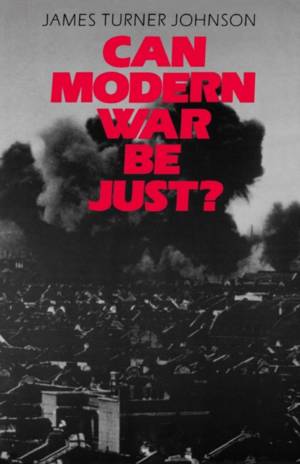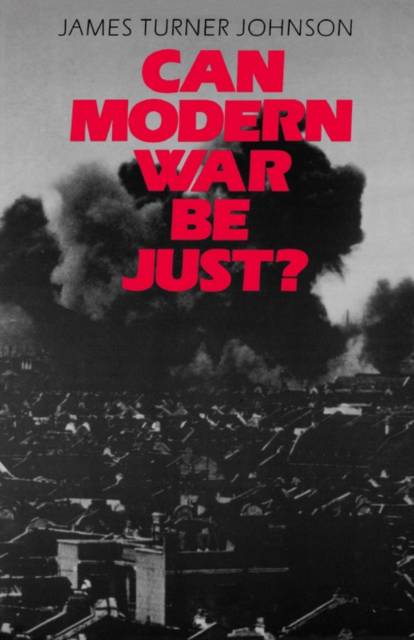
Bedankt voor het vertrouwen het afgelopen jaar! Om jou te bedanken bieden we GRATIS verzending (in België) aan op alles gedurende de hele maand januari.
- Afhalen na 1 uur in een winkel met voorraad
- In januari gratis thuislevering in België
- Ruim aanbod met 7 miljoen producten
Bedankt voor het vertrouwen het afgelopen jaar! Om jou te bedanken bieden we GRATIS verzending (in België) aan op alles gedurende de hele maand januari.
- Afhalen na 1 uur in een winkel met voorraad
- In januari gratis thuislevering in België
- Ruim aanbod met 7 miljoen producten
Zoeken
Omschrijving
Now that mankind has created the capability of destroying itself through nuclear technology, is it still possible to think in terms of a "just war"? Johnson argues that it is, and in the context of specific case studies he offers moral guidelines for addressing such major contemporary problems as terrorist activity in a foreign country, an individual's conscientious objection to military service, and an American defense policy that requires development of weapons that may be morally employed in case of need.
"Remarkable. . . . A thoughtful and even profound book, which can be warmly recommended."--Adam Roberts, New Society
"[A] wise, prudential, and moral thesis. . . . A most important book, one that all Americans who can should read."--George Armstrong Kelly, Political Science Quarterly
"At its heart, Can Modern War be Just? Is a challenge to the common assumption that any modern war must be total--an unrestrained, spasmodic release of one's entire destructive capacity against the whole of the enemy's population."--Richard Allen, Journal of Religious Ethics
"Johnson . . . seriously attempt[s] to balance principles and respect facts. For this he is to be praised."--Gary Jason, Chronicles of Culture
"Johnson's application of just war doctrine to the hardest problems of contemporary warfare is both morally sensitive and intellectually bold. Readers will sometimes disagree with his arguments, but they will be forced to think hard, and they will learn what it is to work within a moral tradition."--Michael Walzer
"Remarkable. . . . A thoughtful and even profound book, which can be warmly recommended."--Adam Roberts, New Society
"[A] wise, prudential, and moral thesis. . . . A most important book, one that all Americans who can should read."--George Armstrong Kelly, Political Science Quarterly
"At its heart, Can Modern War be Just? Is a challenge to the common assumption that any modern war must be total--an unrestrained, spasmodic release of one's entire destructive capacity against the whole of the enemy's population."--Richard Allen, Journal of Religious Ethics
"Johnson . . . seriously attempt[s] to balance principles and respect facts. For this he is to be praised."--Gary Jason, Chronicles of Culture
"Johnson's application of just war doctrine to the hardest problems of contemporary warfare is both morally sensitive and intellectually bold. Readers will sometimes disagree with his arguments, but they will be forced to think hard, and they will learn what it is to work within a moral tradition."--Michael Walzer
Specificaties
Betrokkenen
- Auteur(s):
- Uitgeverij:
Inhoud
- Aantal bladzijden:
- 221
- Taal:
- Engels
Eigenschappen
- Productcode (EAN):
- 9780300036268
- Verschijningsdatum:
- 11/03/1986
- Uitvoering:
- Paperback
- Formaat:
- Trade paperback (VS)
- Afmetingen:
- 140 mm x 209 mm
- Gewicht:
- 272 g

Alleen bij Standaard Boekhandel
+ 105 punten op je klantenkaart van Standaard Boekhandel
Beoordelingen
We publiceren alleen reviews die voldoen aan de voorwaarden voor reviews. Bekijk onze voorwaarden voor reviews.









